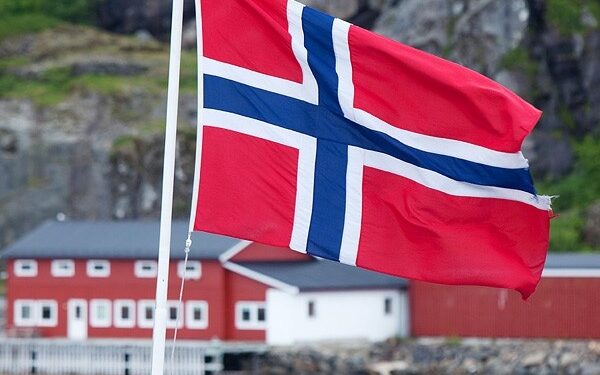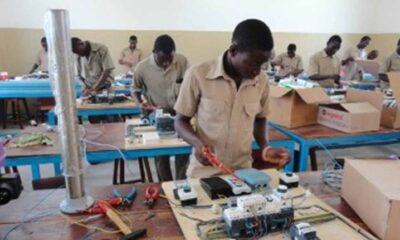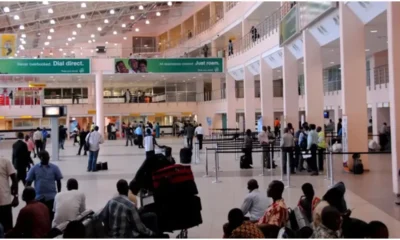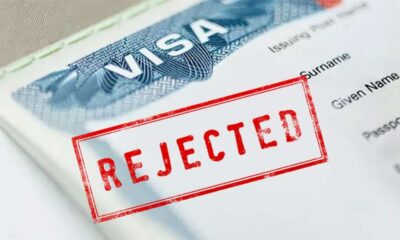Oppotunities
Norway extends training programs, tightens work requirements for refugees
Published
1 year agoon

Norway is set to introduce new regulations aimed at easing the employment process for foreign workers, with a focus on integrating refugees, expanding eligibility for work programs, and extending training opportunities.
According to a YAXIS news report, the new regulations will require participants in induction programs to engage in at least 15 hours of work-related activities per week after three months. This initiative is designed to help refugees enter the labor market more quickly.
These updates reflect Norway’s effort to address its growing labor needs while supporting a more inclusive economy through the integration of foreign workers.
As mentioned, the new regulations mandate that foreign workers, particularly refugees, participate in 15 hours of work-related activities per week once they have been in induction programs for three months.
“This approach will expedite refugees’ entry into the workforce and enable them to contribute to the Norwegian economy,” said a spokesperson for the Ministry of Employment and Inclusion.
Expanded Eligibility for Older Workers
Another major reform is the expansion of eligibility for integration programs to include older foreign workers, aged 55 to 60. This aims to create more opportunities for older immigrants to work in Norway.
“We see the value in experience and are committed to helping older refugees integrate into the labor market,” stated the employment minister.
Extended Training Duration
Additionally, the new regulations will extend the induction program for refugees pursuing formal education by one year, providing more time for upper secondary education and vocational training. This extension aims to enhance job prospects for foreign workers by equipping them with stable, long-term skills.
“Longer training periods will better prepare refugees for the labor market,” a representative from the Norwegian Directorate of Immigration explained.
Successful Integration Model
The updates follow Norway’s recent success in integrating Ukrainian refugees, where over 27% of working-age Ukrainians secured employment. The government plans to replicate these strategies for other incoming foreign workers.
“Effective integration strategies have proven to yield positive employment outcomes,” said a spokesperson for the Ministry of Employment and Inclusion.
Over the past three years, Norway has resettled over 75,000 refugees. Despite managing arrivals, the country still faces a high demand for labor. These new regulations aim to address that shortage by equipping foreign workers with the skills and opportunities they need.
A More Inclusive Workforce
Employment and Inclusion Minister Tonje Brenna emphasized the importance of flexible regulations to support the integration of foreign workers. The government’s focus is on helping foreign workers adapt to Norwegian society through language learning and employment opportunities.
“A flexible approach will help foreign workers settle into their roles and make meaningful contributions to Norwegian society,” Brenna concluded.
You may like
-


FG announces N45,000 monthly stipend for students Nationwide
-


Japa: UK halts recruitment of foreign social care workers
-


78 Nigerian human trafficking victims return from Côte d’Ivoire
-


FG establishes reform committee for NYSC, proposes service for NCE holders
-


13 reasons Nigerians are denied US visas
-


Tinubu makes new appointment

Troops raid notorious bandit hideout in Katsina-Ala, seize arms

I will run in 2027 – Peter Obi reassures supporters

Pastor Chris Okafor’s daughter plans legal action against him over alleged assault – Doris Ogala claims

Benue: Police arrest four suspects linked to Catholic Church abduction in Ado, recover weapons

Benue: Nine abducted Catholic Church children regain freedom in Ado

Benue: Police repel bandit attack in Ugba, kill one, arrest another

Over 32 killed as bandits launch fresh attacks on Niger communities

Report: 36 Nigerians recruited for Russia-Ukraine war, five confirmed dead

Confusion over fate of alleged coup plotters as FG delays action
Trader killed as Hausa, Benue communities clash in Rivers market

Suspected Boko Haram fighters kill 21 in fresh attacks in Niger


